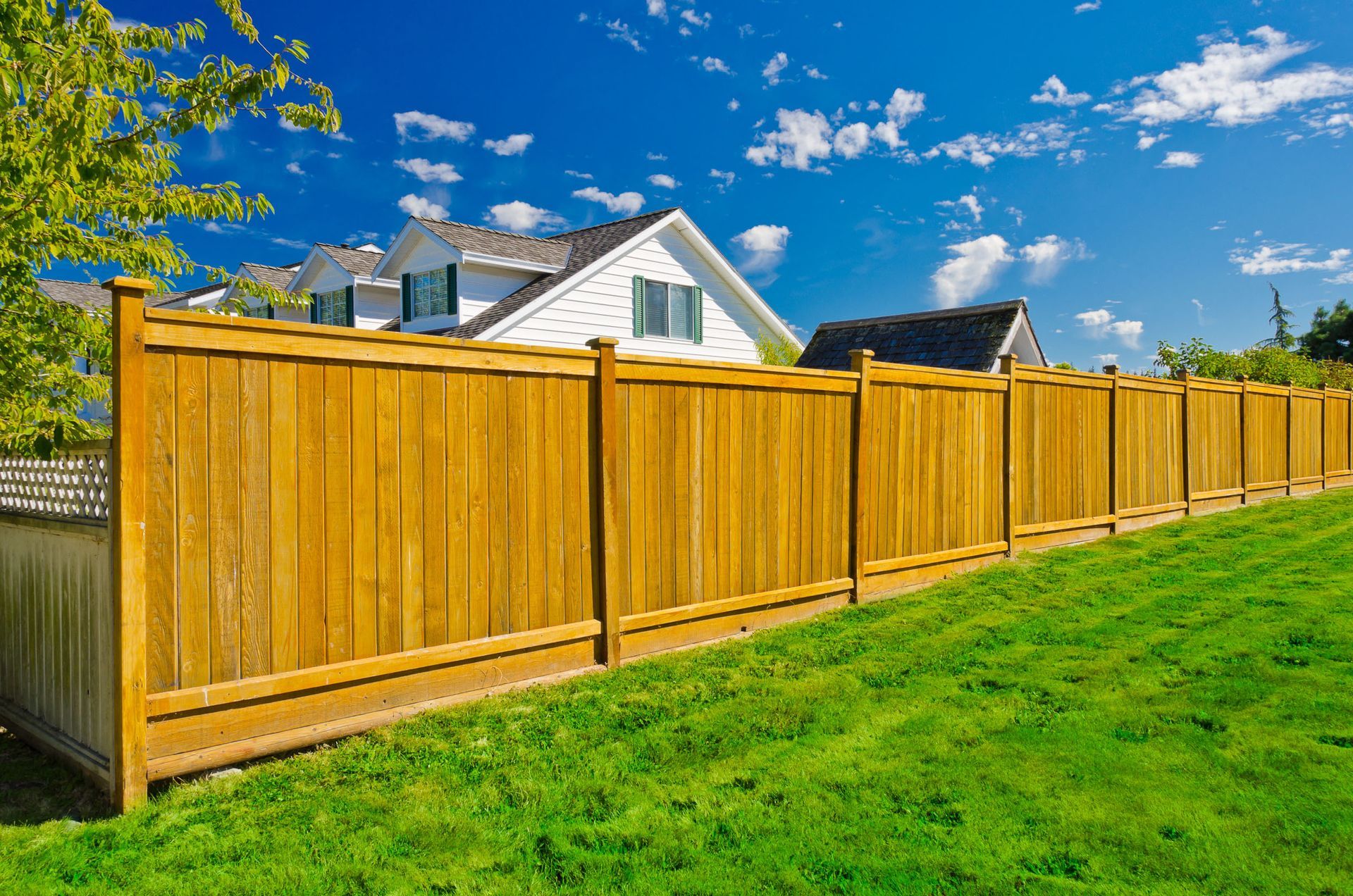All Categories
Featured

Choosing the best sort of fence for your property is a substantial choice that can affect both the aesthetic appeals and functionality of your space. Whether you're searching for privacy, safety, or merely an attractive attribute, there are numerous aspects to think about when choosing the optimal fence. Below are some essential considerations to assist direct your decision-making procedure.
- Determine the Function of the Fencing. The primary step in picking the best sort of fencing is to clarify its objective. Various fencings offer different features, and recognizing your specific needs will certainly aid limit your choices. Consider the following:
Personal privacy: If you're seeking privacy, a solid and tall fence such as wood or plastic will avoid spying eyes from seeing into your lawn. Protection: For safety functions, a strong, tall fencing made of light weight aluminum or steel can prevent trespassers and offer comfort. Visual Allure: An ornamental fencing made from functioned iron, light weight aluminum, or picket-style wood can include appeal and curb appeal to your residential property. Pet or Animal Control: If you need to consist of pet dogs or animals, a tough fence like chain web link or timber may be required to stop them from running away. 2. Consider the Product. Once you have actually developed the fencing's main function, it's time to select the material. Each sort of material comes with its own collection of benefits and obstacles. Right here are some usual materials to consider:
Wood: Timber fences are adjustable and functional, providing privacy and a traditional look. They're optimal for rural properties or typical homes but require routine maintenance to avoid pest, rot, or warping invasion. Plastic: Plastic fences are low-maintenance, long lasting, and available in a variety of styles. They won't break, warp, or discolor, making them a great alternative for those that want a resilient, convenient fence. Nevertheless, vinyl can be more costly upfront than timber. Light weight aluminum: Light weight aluminum fences provide a streamlined, contemporary appearance and are resilient, rust-resistant, and need minimal maintenance. They usually don't provide as much privacy as wood or vinyl, as the slats are commonly spaced apart. Chain Web link: Wire mesh fence are commonly utilized for safety and security or to have pet dogs. They are resilient and budget-friendly, however they do not offer much personal privacy or aesthetic charm unless you add slats or privacy screens. 3. Element in the Climate and Maintenance Needs. Your region's environment can significantly influence the lifespan and maintenance requirements of your fencing. If you stay in a location with high moisture or regular rain, products like wood might need additional like avoid rot or mold and mildew development. On the various other hand, plastic and aluminum fencings are resistant to the components and call for a lot less maintenance.
In addition, take into consideration the quantity of time and effort you want to devote to fencing upkeep. Wood fencings require regular discoloration or painting to maintain their appearance, while plastic and light weight aluminum call for far less maintenance.
- Think of Resilience and Lifespan. Consider how much time you want your fencing to last. If you're looking for a fencing that will certainly last for decades with little maintenance, vinyl and aluminum are outstanding options. While wood fences can last 10-20 years with proper care, they might not stand up to the examination of time as well as various other materials.
Also, consider your budget plan. Products like wood and chain link have a tendency to be even more cost effective upfront, while plastic and aluminum often tend to find with a higher preliminary cost but use long-term toughness.
- Match the Fence to Your Residential Property Style. The sort of fencing you pick must complement the general look of your residential or commercial property. A well-chosen fencing can boost your home's visual allure, while a poorly selected fence can interfere with it. For instance:
Traditional Homes: A traditional wood picket fencing or a functioned iron fencing works well with older, extra conventional homes. Modern Residences: For a modern appearance, smooth products like aluminum or vinyl can complement modern design. Rural or Farm Qualities: A wooden or cord fence might be perfect for rural residential or commercial properties or ranches, where practicality is equally as important as aesthetic appeals. 6. Check Local Laws and HOA Guidelines. Before making your decision, examine your regional zoning laws and any type of HOA (Homeowners Association) standards to make certain that your desired fencing complies with elevation limitations, product needs, and various other regional laws. Some locations have specific policies concerning the appearance of fences, particularly in residential areas.

Final thought. Choosing the best fencing for your residential property requires mindful consideration of your needs, budget, and the style of your home. Whether you're prioritizing privacy, safety and security, or aesthetic charm, there's a fence material and design that will certainly fit your demands. By thinking about the elements described above, you can make a notified decision and choose a fencing that will boost the functionality and charm of your home for several years to come.
Latest Posts
Take Advantage of Exclusive Auto Repair Offers in Chicago at Montclare Auto Repair
Published May 31, 25
1 min read
Uncover Auto Services & More: Comprehensive Auto Care Solutions from Montclare Auto Repair
Published May 26, 25
1 min read
How to Know When Your Car Needs Expert Car Repair at Montclare Auto Repair
Published May 25, 25
1 min read
More
Latest Posts
Take Advantage of Exclusive Auto Repair Offers in Chicago at Montclare Auto Repair
Published May 31, 25
1 min read
Uncover Auto Services & More: Comprehensive Auto Care Solutions from Montclare Auto Repair
Published May 26, 25
1 min read
How to Know When Your Car Needs Expert Car Repair at Montclare Auto Repair
Published May 25, 25
1 min read